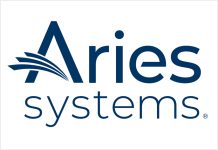
More than 200,000 resources available to researchers, doctors, NGOs and policymakers through at least 2030 to boost evidence-based research, healthcare, policymaking and global justice.
The Research4Life partners announced today that they have agreed to extend their partnership through 2030. The partners have also decided to formally recognize the role of Chief Operations Officer being carried out by Kimberly Parker, an early contributor to Research4Life who has worn many hats, and has been with the World Health Organization as the programme manager for Hinari since 2008.
Research4Life currently provides more than 11,000 institutions in 125 lower income countries, areas and territories with free or low-cost access to peer-reviewed online publications from the world’s leading scholarly publishers. The renewed commitment to 2030 will ensure that the more than 200,000 peer reviewed academic journals, books and databases from some 200 scholarly publishers available through the public-private Research4life partnership will continue to reach research communities in low- and middle-income countries.
Kimberly Parker, Research4Life’s newly designated Chief Operations Officer, said, “The partnership’s overwhelming support to extend the Research4Life mandate to 2030 recognizes the programme’s success in enabling research through training and equitable access to scholarly, professional and research content. I am delighted that Research4Life’s hidden operations now have visibility with the recognition of the role of COO, and this visibility gives us impetus to move the partnerships goals closer to fulfillment.”
Phuntsho Norbu, a researcher and lecturer at Khesar Gyalpo University of Medical Sciences of Bhutan, was one of several Country Connectors that was able to travel to meet with Research4Life’s partners for their annual General Partners Meeting in Washington D.C.. Norbu spoke about the benefit that Research4Life has offered his University, which is one of the leading users of R4L in that country. He notes, “Thanks to Research4Life for providing digital access to evidence-based research, it has enabled a group of around 100 researchers that are doing research for the government – research that is directly influencing policy – to have access to the multidisciplinary research we need.”
User representative Khutsafalo Kadimo from Botswana, who also traveled to the event, discussed the value of Research4Life resources for his country, as well as the unique innovations they have used to solve gaps in their healthcare. “We have 0.3 doctors for every 1000 people in Botswana; in order to solve this massive problem, we have been working with ITOCA to share Research4Life Hinari research with our communities of nurses.”
Our keynote for the event, Geraldine Richmond, the United States Under Secretary for Science and Innovation at the Department of Energy (DOE), emphasized that she was a big fan of the work Research4Life is doing to make the research divide smaller. Richmond also echoed the need for Research4Life’s goals to align with local priorities, and for strategies to include capacity building that will enable researchers to publish and access research in the Global South. She explained that the work we do was very much in line with her work, and that equity was key: “Equity is woven into everything we do, so outreach to communities has to address inequities.”



























